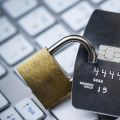Safe on the Internet
If you are logged on to the Windows 2000 or Windows XP operating systems with the user rights of an administrator, your computer may be at risk from "Trojan horses", for example, simply by visiting a website. Even if not all malware programs can be thwarted in this way, you should not surf the Internet with administrator rights. We tell you what else you should think about.



